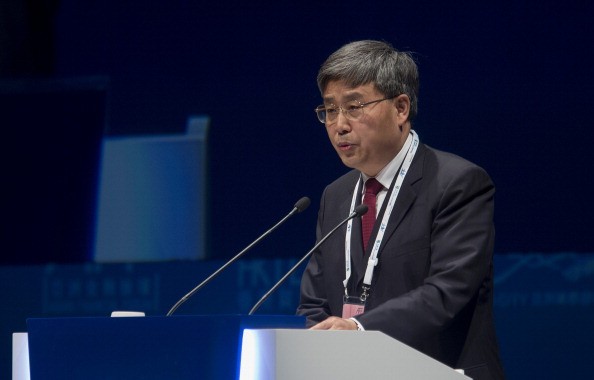The appointment of Guo Shuqing as chairman of the China Banking Regulatory Commission (CBRC) is seen as a decisive move by Beijing to improve the country's financial system amid a rapid economic growth.
Gou replaced Shang Fulin, who reached the official retirement age of 65.
Asia Times said that Guo's immediate challenge is to tackle the banking sector's lending problems and regulate the activities of shadow banks.
Guo is seen as an ideal choice to head CBRC, China's banking regulator, being one of the country's financial experts. Prior to this, he had been appointed as chairman of China Construction Bank Corp, the head of the China Securities Regulatory Commission, and most recently as a governor of Shandong Province.
As chief stock market regulator from 2011 to 2013, Guo, who is known as a reformist, had produced more than 70 new policies.
Guo also pushed for reform in the initial public offerings system as well as the delisting of losing firms.
"Guo's appointment to CBRC brings him back to his area of core expertise: banking," James Stent, a former director at two Chinese banks and author of China's Banking Transformation. said.
"CBRC is a big, complicated organization. You have to be a competent manager. Guo Shuqing has proven in spades he's capable of doing the job."
Guo, a philosophy major and a visiting scholar at Oxford University, was born in China's Inner Mongolia region. He speaks English fluently. He also served as deputy central bank governor and foreign exchange regulator.
Guo is regarded as a reform-minded policymaker, like central bank governor Zhou Xiaochuan and former finance minister Lou Jiwei, according to the report.
Amid the shift in Party leadership, the government's top priority is to contain risk and the banking sector, which is dominated by state-owned lenders, must continue to support the political and economic agenda of the central and provincial governments.
Gou is also expected to help regulate the country's online finance industry as well as check on the rapid growth of credit in the country.
Over the last five years, banking assets have more than doubled, which drove volume of non-performing loans at commercial banks to reach 1.51 trillion yuan by the end of last year. Shadow banking also grew rapidly, which affected small and mid-sized banks.
Fraser Howie, an independent analyst and author of Red Capitalism, said that Guo must have a "serious and respected" regulation to address shadow banking products.
Guo is also expected to work with the country's central bank to tighten oversight on the growing asset management industry in the country.



























